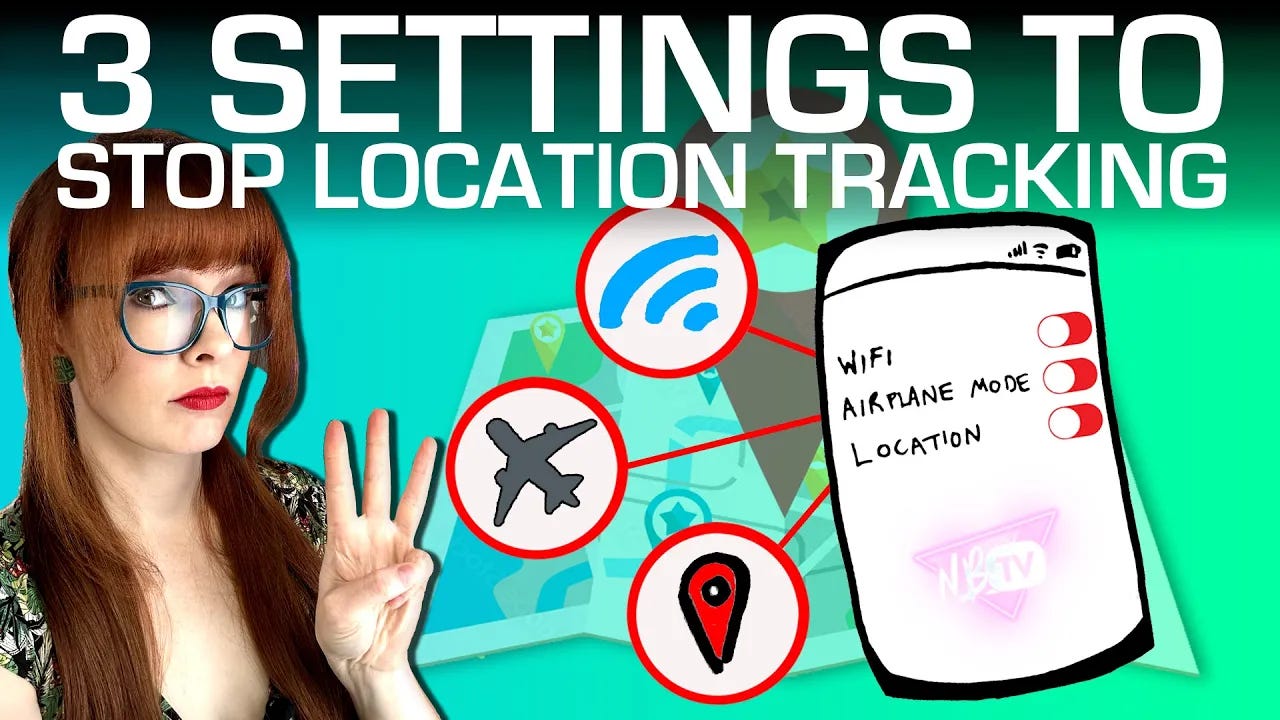This weekend, I attended DEFCON, the world’s largest and most notorious hacking conference. If you’ve never been, it’s an incredible experience. The atmosphere is electric, filled with some of the most brilliant and unconventional minds who are passionate about dissecting technology. You delve into the inner workings of everything from hardware to software, and you learn not only how systems can be exploited but also how to defend against those exploits. It’s a treasure trove of knowledge, and I walked away with a wealth of insights that you can expect to see featured in upcoming episodes.
First: It was SO great to meet so many of you there; thanks for coming up and saying hi! (Note the awesome badge with the Swift add-on 😻)
Second: I gave a small presentation at “Hackers with Disabilities,” where I provided a sneak peek into some of the research I’ve been conducting over the past six months on medical privacy. We have a 3-part series coming out soon on the topic, where I’ll formalize this research, so keep your eyes peeled! Additionally, I gave an impromptu talk on privacy and AI at ShowerCon. Yes, you heard that right—there was a low-key, under-the-radar gathering in one of the suites after the conference, where about 25 of us crammed into a bathroom for restricted talks you won’t find anywhere else. I’m looking forward to bringing some of this exclusive information to you soon as well.
Third: Today, I saw a post from the conference that I thought was a helpful reminder to everyone, so in today’s newsletter, I wanted to give a few tips about location tracking best practices.
This bank was kind enough to let people know that when they enter, the business will collect location information from their devices, and that if you don’t want this information collected, you should turn off WiFi and Bluetooth.
This is GREAT advice.
While people were scandalized by this particular bank, the truth is it’s not just banks or big tech companies that track your location using your phone's Bluetooth and WiFi signals—retail stores, shopping malls, airports, and even small shops are doing it too. When you walk into a store, your phone might be silently broadcasting information that retailers can use to track your movements, analyze your shopping habits, and even identify you the next time you visit. This kind of location tracking has become commonplace, and it's happening without most of us even realizing it.
How BLE and WiFi Tracking Works
Bluetooth Low Energy (BLE) and WiFi tracking work by picking up signals that your phone constantly emits, even when you're not actively using it. Retailers and other businesses install small devices called beacons or sensors throughout their stores. These devices listen for BLE and WiFi signals from smartphones, which can reveal your location with incredible accuracy. This data is then used to analyze foot traffic, understand customer behavior, and send targeted advertisements or offers directly to your phone while you shop. This information can often be linked to your identity, creating a detailed profile of your shopping habits and preferences. This tracking happens invisibly, often without your explicit consent, and it's becoming a standard practice in many retail environments.
Best Practices for Reducing Location Tracking:
Airplane Mode:
How tracking works: Even when you're not making calls or using data, your phone constantly communicates with nearby cell towers to maintain a connection. This interaction allows the network to triangulate your location based on signal strength and distance from multiple towers.
What you can do: Turning on Airplane Mode disables communication with cell towers, which stops your location from being triangulated by them every time you connect to a tower. Use when you're not actively using the cell network to prevent unnecessary data sharing.
Location Services:
How tracking works: GPS calculates your location by communicating with a network of satellites, while WiFi and cell towers provide additional location data, especially in areas where GPS signals are weak or obstructed. This information is then shared with many apps and services on your phone.
What you can do: Disabling Location Services controls GPS and other location tracking methods. Review and manage which apps have access to your location, and consider turning it off entirely when not needed. This reduces the amount of location data shared with apps and third parties, helping to protect your privacy.
WiFi:
How tracking works: WiFi access points use the data from your device’s WiFi probe requests and known WiFi network locations to triangulate your position, even without an active WiFi connection.
What you can do: Turn off WiFi when not in use to prevent your phone from sending or receiving location data. This prevents your phone from broadcasting signals that can be used to track your location.
Bluetooth:
How tracking works: BLE beacons in stores or other public places detect the Bluetooth signal from your phone, allowing them to track your movement, analyze foot traffic, and even push targeted ads or notifications to your device.
What you can do: Turn it off when not in use, which stops you from being tracked by Bluetooth signals in public spaces.
Faraday Bags:
How tracking works: Given how many different kinds of emissions are broadcast from our devices and used to track us, a Faraday bag creates a physical barrier that blocks these signals and prevents wireless signals from reaching your phone.
What you can do: Consider storing your phone in a Faraday bag when you’re not using it if you’re concerned about location tracking.
Here is a video we did a while ago diving into this topic:
Conclusion:
By implementing these best practices, you can take significant steps toward protecting your privacy. While some of these measures might seem inconvenient at first, they quickly become second nature, just like locking your front door when you leave home.
If you found this information helpful, consider supporting our channel by donating to NBTV. Your support helps us create free educational content that teaches people how to reclaim control over their digital lives. Visit NBTV.media/support to set up a monthly, tax-deductible donation to our non-profit.
Yours in privacy,
Naomi








What’s your recommendation for folks who need to leave Bluetooth on to stay paired with medical devices like constant glucose monitors.
Is there a way to restrict Bluetooth settings to be safer while still getting constant medical data needed?
Thank You, Naomi. I found this helpful article on Naked Capitalism today, and will add it to my next blog post at drjohnsblog.substack.com